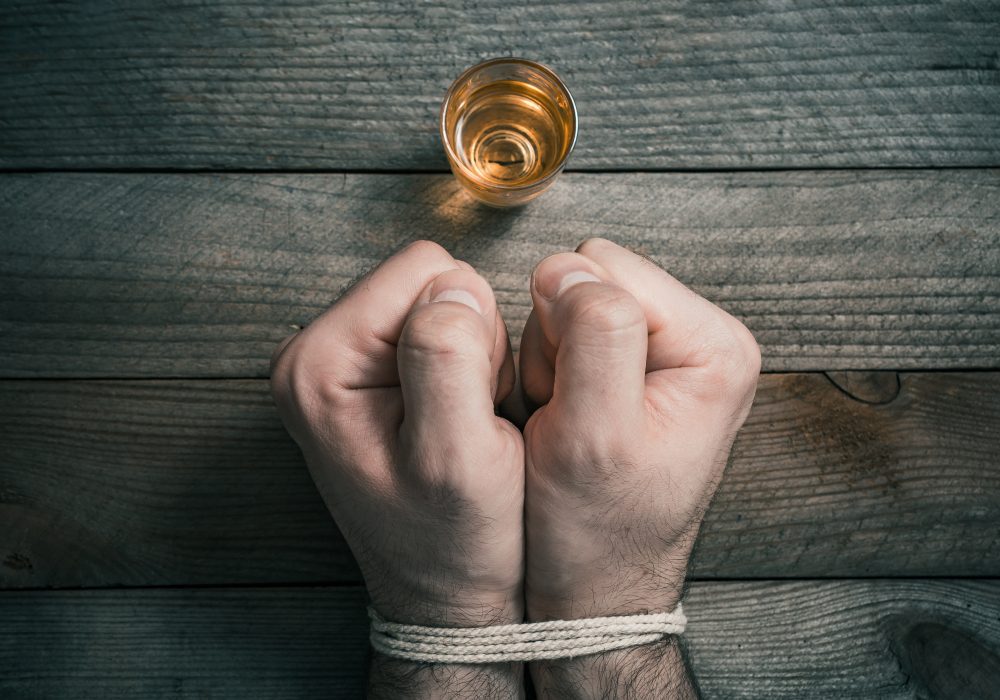0207 205 2845 0207 205 2845


Alcohol cravings can happen at any time; recognising the triggers and defeating them during recovery can sometimes be challenging.
Some important points about alcohol cravings: Cravings are a common symptom of alcohol withdrawal. Cravings are essentially psychological withdrawal symptoms. Cravings for alcohol indicate you will be prone to experiencing distress except when you begin to drink alcohol again. Those who abuse alcohol and have alcoholism will undergo strong and overpowering cravings.
Relative to the amount of alcohol you drink, for some, urges to drink are not constant. In time, they come and go and vary in intensity. Alcohol cravings are only very severe for short periods, usually less than one hour, and then settle down to a more controllable level.
With alcohol addiction or alcohol use disorder, the brain has undergone critical changes to adapt to excessive exposure to alcohol; abruptly stopping drinking or reducing consumption too quickly can send the brain into significant overdrive.
Abruptly stopping drinking after heavy alcohol use may trigger life-threatening health complications.
Cravings are often triggered by physical or psychological discomfort, and you will have cravings as you go through uncomfortable withdrawal symptoms.
If you want to control alcohol cravings, you have to ensure that you avoid these high-risk situations. You will probably still get cravings, even after you’ve gone through withdrawal. Again, they usually become more comfortable to cope with after alcohol withdrawal because physical symptoms do not accompany them. How long it takes to stop craving alcohol will depend on how long you drink alcohol and how much you drink. It’s like a hungry cat – if you feed it, it will return. If you don’t, it will (eventually) go away.
It would help if you were prepared for alcohol cravings – you will get them. Different people have different ways of coping. Remember, cravings are usually only very severe for short periods, and then the severity of the craving reduces to a level that is easier to deal with. The goal is to get through this critical period.
The following methods have been successful for many people. Delay the decision about drinking for one hour. When a craving is severe, the big question is: ‘Am I going to consume alcohol?’ It’s normal when you get cravings to go through the struggle between the desire to drink and the desire to remain alcohol-free.
The more you try to battle this out, the more anxious you become and the more severe your alcohol cravings become. So, delay this decision; put it off for an hour. Don’t try to decide one way or the other.
You may drink, you may not – that’s something that you can decide after an hour. Distract yourself with some activity during this hour. Cravings can occupy your thoughts a lot. The more you think about them, the bigger they become.
One way to avoid this is by putting your energy into other things such as listening to music or a relaxation tape, watching TV or a video, cleaning out the fridge, talking to someone or going for a walk with someone ‘safe’. Remember, concentration can be difficult during withdrawal, so don’t plan to do anything too complicated, or you will get frustrated.
After the hour, ask yourself, ‘Why don’t I want to drink?’ and ‘What have I got to lose?’ By this stage, the alcohol cravings should have settled down – although probably not gone away. Go over all the reasons why you want to stop drinking, why you are trying to withdraw from alcohol and, importantly, what you will be returning to if you get back into using full-on again. Look at the pros (positives) and cons (negatives) about drinking that you wrote down at the beginning of the alcohol withdrawal.

Repeated exposure to toxic chemicals like alcohol will, over time, sustain physiological damage to tissues, cells, pathways, and the pleasure/reward system of the brain. This leads to more alcohol cravings and can lead to mental health problems. Avoiding anxiety by drinking alcohol, for instance, is not adjusting to the situation appropriately. This is why people who are alcohol dependent are more likely to drink again during their recovery process.
The brain will recover, but it takes time, a lot of effort, and often, peer support and professional help.
A behavioural intervention like cognitive behavioural therapy is helpful to anyone who is enduring overpowering cravings. These therapies help people recognise the mental processes in the brain that are partially the reason for their drinking and use coping mechanisms to halt the behaviour.
Evidence-based treatments, holistic therapy, and other rehabilitation plans have been shown to reverse the harm caused by addiction in various cases. Attending support groups like Alcoholics Anonymous is also a highly effective way to sustain your recovery.
Some medications have been found to help people decrease cravings and prevent relapse, mainly when used with other forms of treatment:
Unfortunately, when you’re an alcoholic, cravings don’t always go away entirely. They can return years or even decades later. One of the best things for long-term recovery is to recognise and respond to them in a healthy, positive way.
If you or a loved one suffers from alcoholism, the best way to overcome cravings is to undergo addiction treatment at a medically assisted detox. Residential rehab means you are under constant medical supervision and removed from your usual drinking surroundings. This is helpful because it means you will be away from addiction triggers that allow cravings.
Rehab Guide is an expert advice service established to help those who are troubled with alcoholism. If you suffer from alcohol abuse or substance abuse and wish to get help, contact us now for help and advice.